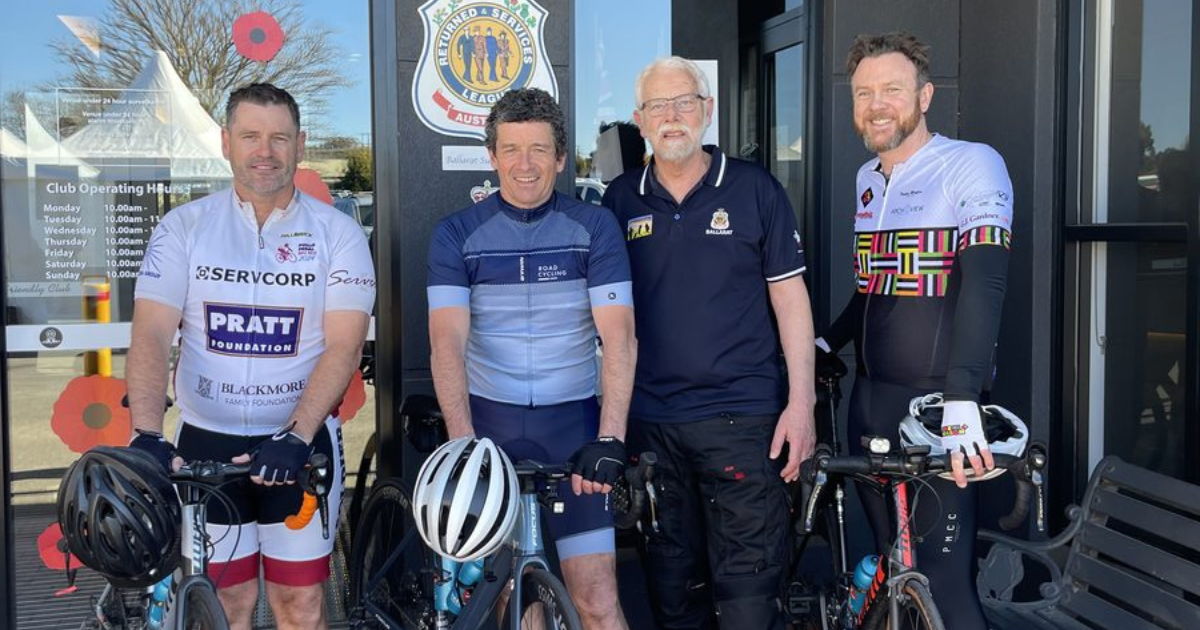Social justice and climate key for McAloon

Alternative option: The Greens’ Karen McAloon will contest the seat of Ballarat at the upcoming Federal election. She loves zipping around town on her electric bicycle. Photo: EDWINA WILLIAMS
SOCIAL justice has always been a focus for Karen McAloon.
Growing up on a dairy farm in the Western District, her Catholic family would help anyone that needed support.
At 18, Ms McAloon moved to Melbourne to study applied science at RMIT and got into student politics. She laughs when she remembers one of her first protest marches.
“The organisation was called Anti-Nuclear Tertiary Students, but the acronym was ANTS, so we had these t-shirts with ANTS and we all went down the street angry about something,” she said.
“Just seeing the passion in people for social change, having grown up in a small town and moving to a city, it really exposes you to different points of view and the way the real world is.”
That passion Ms McAloon saw in others has always been just as prominent within her.
She’s travelled Australia and the world, working in hospitality, volunteering, completing conservation and social enterprise projects, supporting marginalised groups like the homeless and people with disabilities, and teaching in vocational education and training.
Currently, Ms McAloon spends half her time living in the Hepburn Shire and the other half in Ballarat. She runs a garden art manufacturing and tourism business in Blampied, while her two kids attend school in Ballarat.
But recently, she was approached to stand in the federal election as the Greens candidate for Ballarat. It’s another impressive string in her bow.
Ms McAloon had joined the party 15 years ago as it was simply a “natural fit” that aligned with her values and resonated. But now, with older, more independent children, she felt it was the right time to take a step up and be Ballarat’s Green federal voice.
“My kids are teenagers so they’re starting to get very politically activated as well,” she said.
Attending the youth climate strike in Melbourne recently, Ms McAloon became increasingly concerned for the future of her children’s generation and beyond.
“It makes you think, as a parent, why are we handing this legacy onto them? I feel like I’ve been fighting for this for a long time. It’s frustrating,” she said.
Approaching the election, plenty of issues are important to Ms McAloon away from the climate, including disability advocacy and NDIS funding, fair wages and job security, community health and family violence, affordable housing and rights for renters.
In the electorate of Ballarat, she sees issues with transport, population, water stores, the need for accessible sporting facilities for all abilities, and finding a balance between city growth and maintaining sustainability.
But ultimately, Ms McAloon wants to make sure she sends one particular message, addressing people who are frustrated and feeling underrepresented by current leadership when it comes to climate action.
“Catherine King is a strong candidate, but I’d like people to think that there is an alternative and they can send a message to the major parties,” she said. “We do need the Greens in the Senate.
“We do have some influence even though we’re a small party. The Greens do differ in a lot of policy areas. The major difference that I see is around climate change. The Greens can influence that.”


















